Washington is nearing deals with two Pacific island nations to extend ties considered critical to countering China’s influence in a region where Beijing is expanding its economic, diplomatic and military clout.
The US this week signed memorandums of understanding with the Marshall Islands and Palau — which are diplomatic allies of Taiwan — that could facilitate quick completion of broader agreements that would govern relations with Washington for the next two decades.
Those ties provide substantial aid to the islands in return for military rights and other security needs.
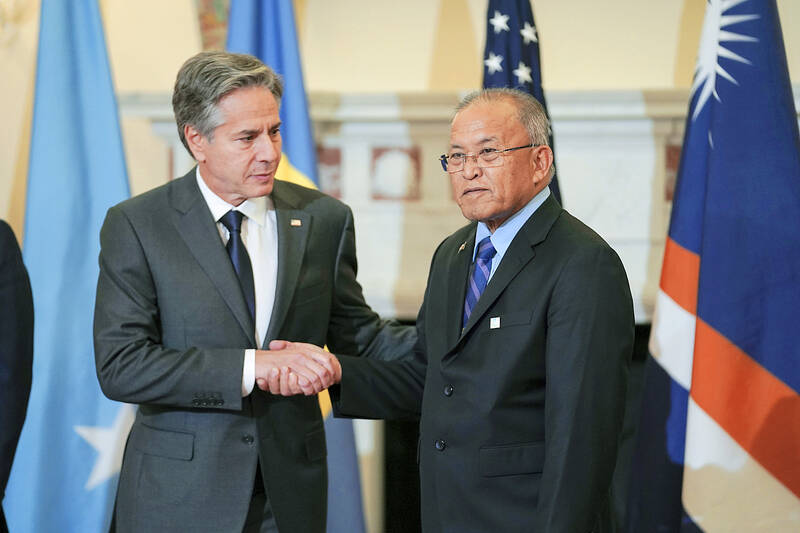
Photo: AP
The administration believes that extending so-called Compacts of Free Association agreements is key to retaining power and blunting Chinese assertiveness in the Indo-Pacific region.
The memorandums define the amounts of money that Washington would provide to the Marshall Islands and Palau if their compacts are successfully renegotiated. Talks on a similar memorandum with Micronesia are also in progress.
The current 20-year compacts with the Marshall Islands and Micronesia expire this year. The one with Palau expires next year, but Washington officials said they believe all three can be renewed and signed by June.
Officials would not discuss specifics of the amounts of money involved because the deals are not yet binding and must be reviewed and approved by the US Congress as part of the budget process.
The Micronesian daily the Marianas Variety on Thursday reported that the Marshall Islands is to receive US$700 million over four years under the memorandum that it signed. However, that amount would cover only 20 percent of a 20-year compact extension, and does not include the amount Palau would receive.
US negotiator Joe Yun said the amounts are to be far greater than what the US provided in the past.
Yun said China was not specifically mentioned in the negotiations, but it was a major element in all sides’ discussions.
“The threat from China is unstated, but there is no question that China is a factor,” said Yun, who signed the memorandums in Los Angeles with representatives of the Marshall Islands and Palau on Tuesday and Wednesday.
Not only does China have a large and growing economic presence in the region, but the Marshall Islands and Palau both recognize Taiwan diplomatically.
“They are coming under Chinese pressure,” Yun said.
China has steadily poached allies from Taiwan in the Pacific, including Kiribati and the Solomon Islands in 2019. The US announced plans last year to reopen an embassy in the Solomon Islands, which has signed a security agreement with China.
Since World War II, the US has treated the Marshall Islands, along with Micronesia and Palau, much like territories. On the Marshall Islands, the US has developed military, intelligence and aerospace facilities in a region where China is particularly active.
In turn, US money and jobs have benefited the islands’ economy, while many islanders have the right to live and work in the US.
However, Pacific island residents and lawmakers have long said that the previous compacts they signed did not adequately address their needs or long-term environmental and health issues caused by US nuclear testing in the 1950s and 1960s.
Yun said the Marshall Islands in particular would be compensated for such damage and would be given control over how that money is spent.
Yun said it would pay “nuclear-affected communities’ health, welfare and development,” adding that the US had committed to building a new hospital and a museum in the Marshall Islands to preserve the legacy of their role, notably in the Pacific theater during World War II.
This week’s signings clear the way for individual federal agencies — including the US Postal Service, Federal Aviation Administration, Federal Emergency Management Agency, and National Weather Service — to negotiate their own agreements with the Marshall Islands and Palau.
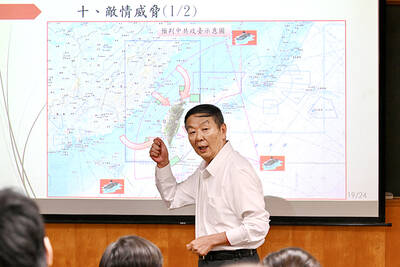
RETHINK? The defense ministry and Navy Command Headquarters could take over the indigenous submarine project and change its production timeline, a source said Admiral Huang Shu-kuang’s (黃曙光) resignation as head of the Indigenous Submarine Program and as a member of the National Security Council could affect the production of submarines, a source said yesterday. Huang in a statement last night said he had decided to resign due to national security concerns while expressing the hope that it would put a stop to political wrangling that only undermines the advancement of the nation’s defense capabilities. Taiwan People’s Party Legislator Vivian Huang (黃珊珊) yesterday said that the admiral, her older brother, felt it was time for him to step down and that he had completed what he
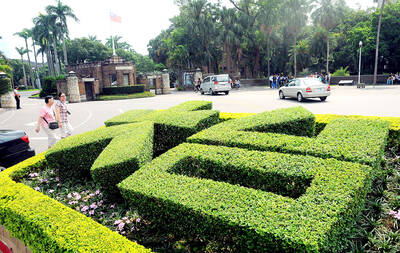
Taiwan has experienced its most significant improvement in the QS World University Rankings by Subject, data provided on Sunday by international higher education analyst Quacquarelli Symonds (QS) showed. Compared with last year’s edition of the rankings, which measure academic excellence and influence, Taiwanese universities made great improvements in the H Index metric, which evaluates research productivity and its impact, with a notable 30 percent increase overall, QS said. Taiwanese universities also made notable progress in the Citations per Paper metric, which measures the impact of research, achieving a 13 percent increase. Taiwanese universities gained 10 percent in Academic Reputation, but declined 18 percent
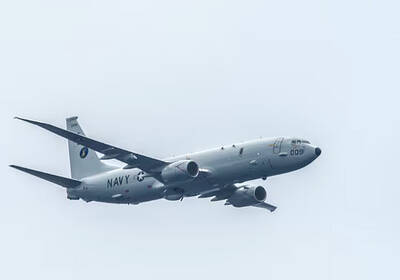
CHINA REACTS: The patrol and reconnaissance plane ‘transited the Taiwan Strait in international airspace,’ the 7th Fleet said, while Taipei said it saw nothing unusual The US 7th Fleet yesterday said that a US Navy P-8A Poseidon flew through the Taiwan Strait, a day after US and Chinese defense heads held their first talks since November 2022 in an effort to reduce regional tensions. The patrol and reconnaissance plane “transited the Taiwan Strait in international airspace,” the 7th Fleet said in a news release. “By operating within the Taiwan Strait in accordance with international law, the United States upholds the navigational rights and freedoms of all nations.” In a separate statement, the Ministry of National Defense said that it monitored nearby waters and airspace as the aircraft
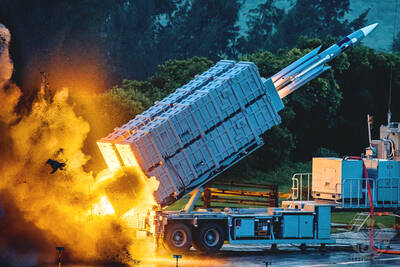
UNDER DISCUSSION: The combatant command would integrate fast attack boat and anti-ship missile groups to defend waters closest to the coastline, a source said The military could establish a new combatant command as early as 2026, which would be tasked with defending Taiwan’s territorial waters 24 nautical miles (44.4km) from the nation’s coastline, a source familiar with the matter said yesterday. The new command, which would fall under the Naval Command Headquarters, would be led by a vice admiral and integrate existing fast attack boat and anti-ship missile groups, along with the Naval Maritime Surveillance and Reconnaissance Command, said the source, who asked to remain anonymous. It could be launched by 2026, but details are being discussed and no final timetable has been announced, the source